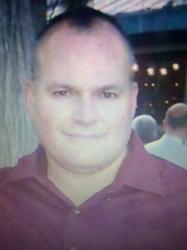Here are four games to forever remember–NFL football at its best.
#4 December 23, 1972, Pittsburgh Steelers 13, Oakland Raiders 7, Three Rivers Stadium: Defense dominated as the teams went into the locker room tied 0–0. Pittsburgh took a 3–0 lead when Roy Gerela kicked an 18-yard field goal early in the 3rd stanza, and the Steelers increased the gap to 6–0 in the fourth. That’s when the Raiders’ offense came to life with an 80-yard drive to take a 7–6 lead. With just 22 seconds left on the clock and facing 4th and 10 on their 40-yard line, Franco Harris scored the winning touchdown on what will be known forever as The Immaculate Reception.
#5 December 27, 1975, Dallas Cowboys 17, Minnesota Vikings 14, Metropolitan Stadium: The Vikings took a 7–0 lead into the locker room courtesy of a rookie mistake. Offensive lineman Pat Donovan tried but couldn’t recover a punted ball that he thought had touched his teammate Cliff Harris. The Vikings recovered the flub on the Dallas four-yard line and punched it for a touchdown a few plays later. The first sustained drive didn’t occur until early in the third quarter when the Cowboys evened things up at 7–7. Dallas took a 10–7 lead before Minnesota responded with their only good offensive drive of the game–a 70-yard, 11-play drive that ended with a TD. The Cowboys’ next possession resulted in a punt, and Minnesota took over with just 3:12 left on the clock, hoping to run out the clock. But the Doomsday Defense rose to the occasion, forcing a punt, and Dallas took possession on their 15-yard line with 1:51 left.
Keeping the drive alive after converting a 4th and 16 at mid-field, Dallas decided to go for it all on 2nd and 10 with 24 seconds and no timeouts. Roger Staubach hurled a long pass to Drew Pearson, who caught the ball on his hip at the four and ran into the end zone for a 50-yard touchdown.
#6 December 23, 1972, Dallas Cowboys 30, SF 49ers 28, Candlestick Park: Dallas fell behind quickly when Vic Washington ran the opening kickoff 97 yards to put the 49ers up 7–0. The Cowboys cut the lead to 7–3 with a 37-yard field goal, and after the teams exchanged turnovers, the 49ers scored another touchdown to go up 14–3. A second Dallas turnover led to another 49ers touchdown. But the Cowboys came back with a field goal and a touchdown to narrow the gap to 21–13. Dallas continued to have problems holding onto the ball in the third quarter. A fumble led to another 49ers touchdown, which increased their lead to 28–13. Towards the end of the third quarter,
Cowboys coach Tom Landry replaced quarterback Craig Morton with Roger Staubach, who had missed most of the season due to injury.
#7 December 18, 1976, Oakland Raiders 24, NE Patriots 21, Oakland Alameda County Coliseum: New England defeated Oakland 48–17 in Week 4 of the season, handing the Raiders their only loss of the year. And after the opening drive of the playoff game, it looked like New England would win again. That’s because the Patriots marched 86 yards in 10 plays to take a 7–0 lead. But the Raiders narrowed the gap to four points on Errol Mann’s 40-yard field goal and took the lead, 10-7, in the second quarter on a Ken Stabler-to-Fred Biletnikoff 31-yard touchdown pass. But the Patriots grabbed the lead back on their opening drive of the third quarter. NE went 80 yards in nine plays, scoring a touchdown on a 26-yard touchdown pass from Steve Grogan to tight end Russ Francis. The Patriots expanded the lead to 21-10 on a 10-play, 55-yard drive, but Oakland came right back with a 70-yard drive in eight plays to close the gap to four. The teams exchanged punts before New England misfired on a 50-yard field goal attempt. Oakland took possession with good field position and 4:12 left on the clock. They drove to the Patriots’ 28-yard line before stalling.
An incomplete pass would have made it 4th and 18, but a roughing the passer penalty on nose tackle Ray “Sugar Bear” Hamilton gave Oakland a first down on the 13-yard line with 57 seconds on the clock. (Patriots coach Chuck Fairbanks questioned the penalty, saying, “It looked to me like Ray hit the ball first. If he did deflect the ball, and it was an incorrect call.”)














